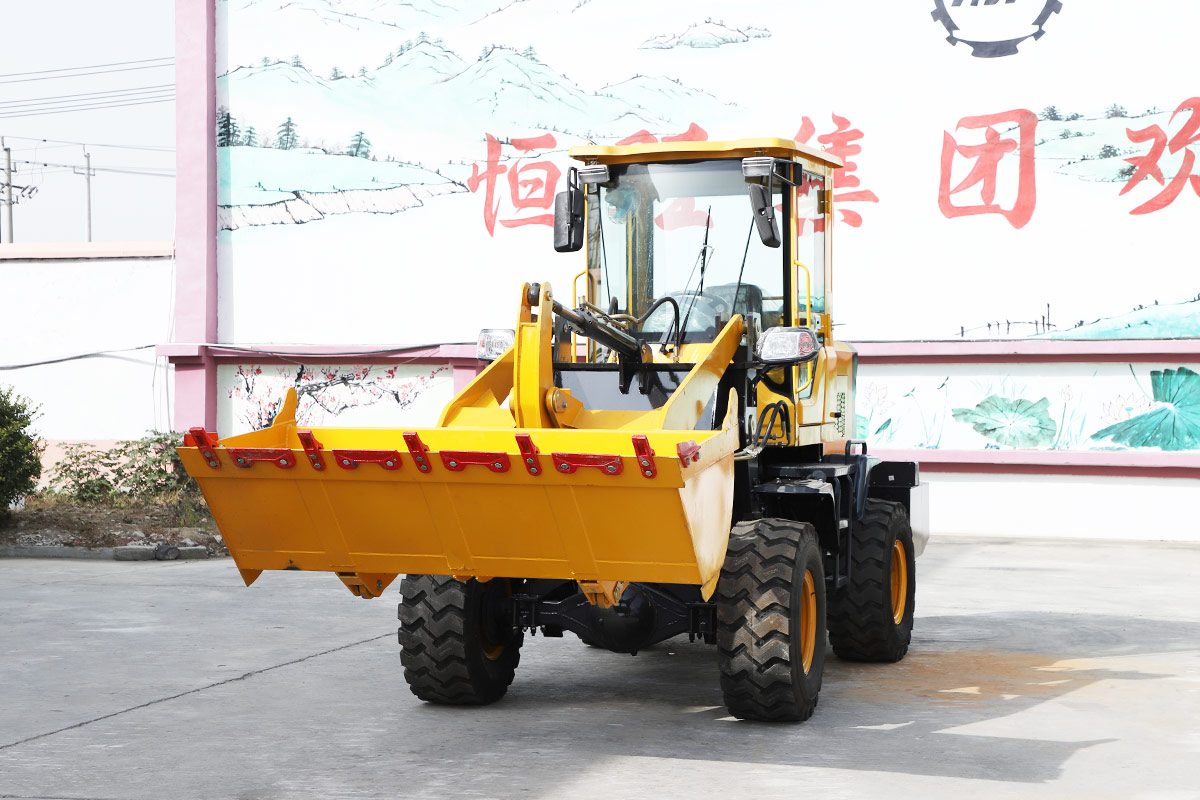6 ways to properly operate a loader

One light: When the loader is working, the heel is pressed against the floor of the cab, the foot plate and the accelerator pedal are kept parallel, and the gas pedal is gently pressed down.
Second stability: When the loader is working, the accelerator should always be steady. Under normal operating conditions, the throttle opening should be around 70%.
Three separations: When the loader is working, the foot plate should be separated from the brake pedal and placed flat on the floor of the cab, and must not be stepped on the brake pedal. Loaders often work on uneven construction sites. If the foot is always on the brake pedal, the body will move up and down, which will cause the driver to step on the brake pedal carelessly. Under normal circumstances, use the method of controlling the throttle to decelerate to control the engine condition and shift. This not only avoids the overheating of the braking system caused by frequent braking, but also brings convenience to the quick acceleration of the loader.
Four diligence: When the loader is working, especially when the shovel is working, the bucket should be full of materials by cyclically pulling the lifting and bucket joysticks under the condition of stable throttle. The cyclic pulling of the hoisting and bucket levers is what is called "Qin". This process is very important and has a large impact on fuel consumption.
Five coordination: Coordination is the organic cooperation of the lifting and bucket levers. The general digging process of a loader starts by laying the bucket flat on the ground and driving it smoothly toward the stockpile. When the bucket encounters resistance in parallel shoveling to the material pile, the principle of lifting the arm first and then closing the bucket should be followed first. This can effectively avoid resistance at the bottom of the bucket, so that the maximum breakout force can be fully exerted.
Six prohibitions: First, it is strictly forbidden for tires to skid. When the loader is operating, the tires tend to skid when the accelerator is slammed against the resistance. This phenomenon is usually caused by improper operation of the driver, which not only increases the fuel consumption but also damages the tires. Secondly, it is strictly forbidden to tilt the rear wheel. Due to the large breakout force of the loader, the driver is usually in the process of shovelling solid raw soil and stone mountains. If the operation is improper, the two rear wheels are prone to lift off the ground. The landing inertia of this lifting action will cause the blade of the bucket to break and the bucket to deform; when the rear wheel is lifted very high, it is easy to cause cracks in the welds of the front and rear frames, and even the plate breaks. Third, it is strictly forbidden to hit the stockpile. When shovelling common materials, the loader can operate in gear II, and it is strictly forbidden to carry out inertial impact on the stock pile at gears above II. The correct method should be when the bucket is close to the material pile, timely switch the gear to I gear to complete a shoveling process.

